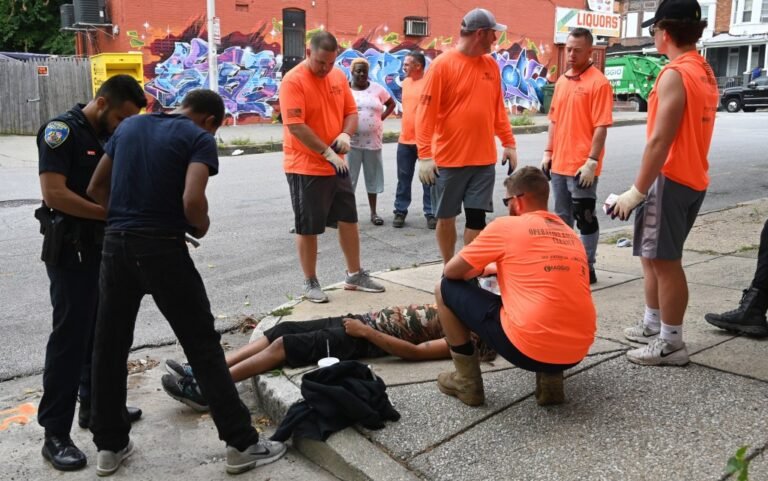One of the most intractable public health challenges during the COVID-19 pandemic has been overcoming distrust of government and public health institutions, including among Black and brown communities. But in Maryland, one innovative approach to partnering with local barbers and hair stylists, a trusted foundation for many Black communities, is building trust and helping people get shots into their arms. Ta. As we battle another devastating crisis, the opioid overdose epidemic, similar hyperlocal, innovative thinking has guided our response and has been approved by the U.S. Food and Drug Administration (FDA). Access and availability of all opioid recovery medications must be ensured.
As a professor of health policy and management and founding director of the Center for Health Equity at the University of Maryland, I have long focused on eliminating racial and ethnic health disparities. For seven years, I also served on the Maryland State Board of Health under Governors Martin O’Malley and Larry Hogan. My commitment to community engagement began more than a decade ago when I founded a barbershop initiative known as HAIR (Health Advocates In-Reach and Research).
Within the black community, barbers and cosmetologists are trusted. They listen to me and I feel like family. Our research shows that barbershops and beauty salons can be effective community-centered sites for promoting health education and disease prevention services. They found that training barbershop participants as health educators helped them get injections into reluctant arms.
Last year, the Centers for Disease Control released a report showing that more Black Americans died from fentanyl overdoses in 2021 than from any other drug. In fact, the overdose death rate for black people was much higher than the death rate for whites and Hispanics, and fentanyl was the leading cause of all overdose deaths.
In Maryland, this crisis is impacting both urban and rural communities. According to the Maryland Overdose Control Agency, from October 2022 to September 2023, there were 2,513 fatal overdoses in the state, with fentanyl involved in about 80% of the deaths. Accidental overdose is now the leading cause of death in Maryland.
The lessons we learned through the HAIR initiative apply well here. We know that trusted, neighborhood-based relationships can help make people more aware of the devastating role that synthetic opioids like fentanyl have on Black and brown communities. This education is critical because fentanyl is 50 times more potent than heroin and 100 times more powerful than morphine. Just 2 milligrams, the equivalent of several grains of salt, can be fatal. Synthetic opioids remain in the body for a long time, so the most widely available reversal agents may need to be administered multiple times, even if first responders have them on hand. The fact that fentanyl is regularly added to counterfeit prescription drugs like Adderall and OxyContin, as well as recreational drugs like marijuana, only makes them more deadly.
It is up to policymakers to ensure that emergency responders, health care providers, and the general public have access to all FDA-approved opioid recovery medications that are critical to dealing with sudden overdoses.
All states must issue their own policies or standing orders to ensure the availability of FDA-approved opioid overdose reversal medications. Here in Maryland, this has prompted state legislative leaders to introduce legislation in the House and Senate to encourage this change. I applaud these efforts and encourage members of Congress to take up and pass these bills. In fact, as I was testifying to pass these bills, I received a text message from an old friend whose son tragically died of an overdose right in front of me. I took this story to Congress to urge our communities to have access to medication to reverse all overdoses.
Communities deserve access to the most effective and innovative tools to combat fentanyl overdose and its devastating effects. Programs like HAIR embody the resilience and ingenuity of Black communities and demonstrate how they have pioneered approaches to addressing health disparities. It is clear that communities can spearhead meaningful change if given the right resources. But it is disappointing to see my state fall short in this regard. Maryland needs to take immediate action and leverage the innovation lessons learned from Black communities to inform better policies. It’s time to prioritize saving lives by ensuring access to all FDA-approved opioid antagonists.
Stephen B. Thomas (sb*@*md.edu) is director of the Maryland Center for Health Equity within the University of Maryland School of Public Health.

